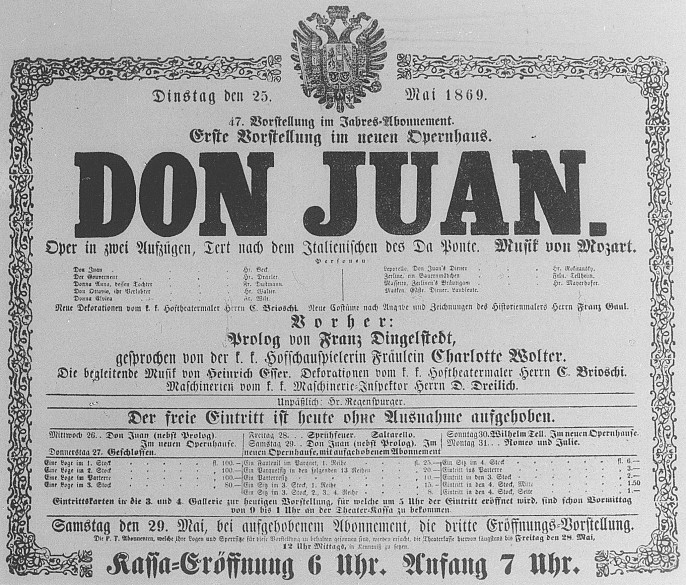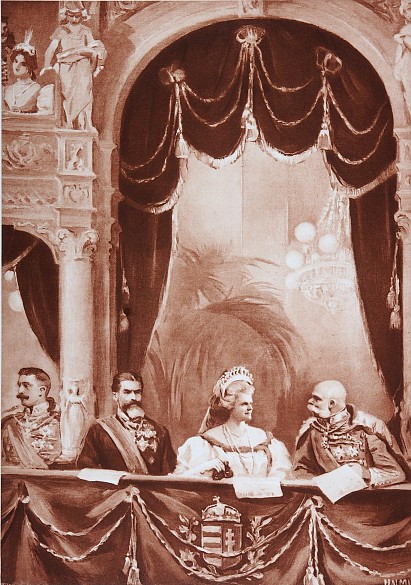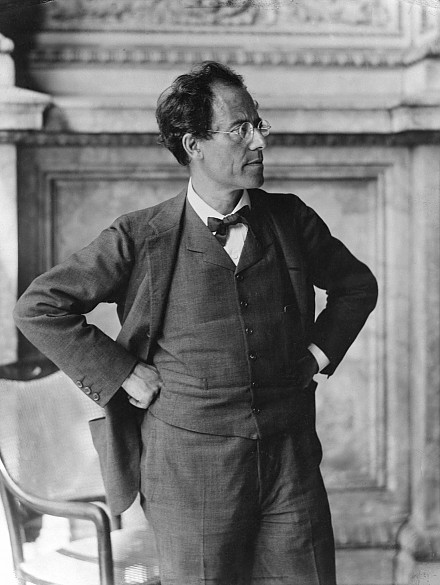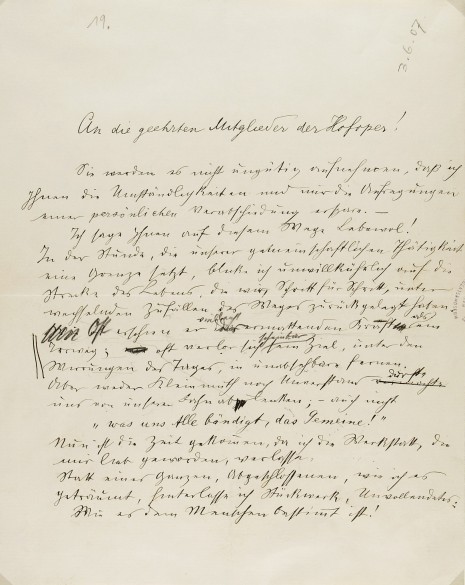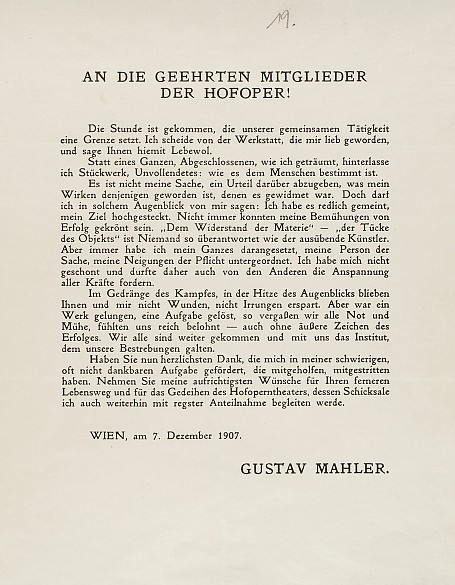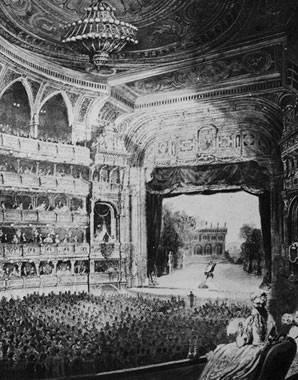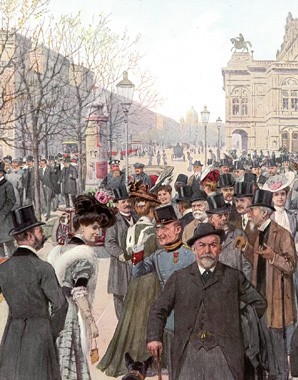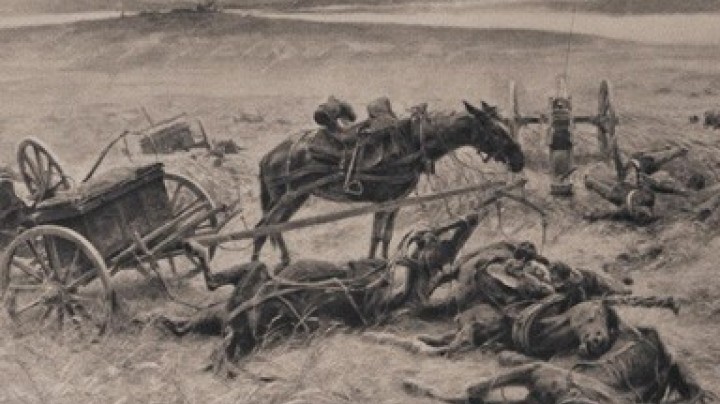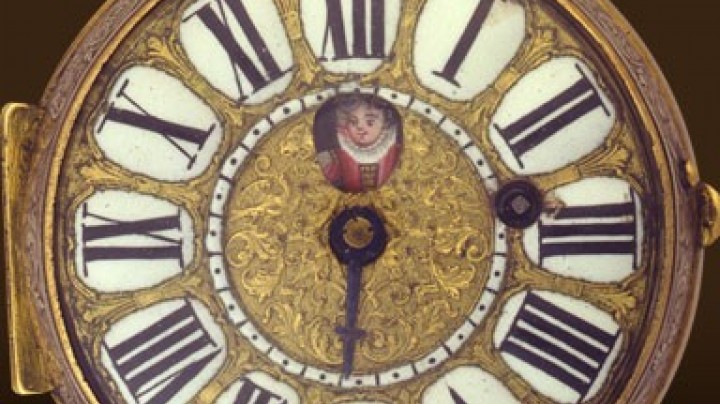Musical life in the new opera house on the Ring
On 25 May 1869 the new opera house opened with a performance of Mozart’s Don Giovanni, which was attended by Emperor Franz Joseph in the company of King of Hanover. Empress Elisabeth was conspicuous by her absence, as was noted in the press.
Stefan Zweig, Die Welt von Gestern: Erinnerungen eines Europäers (publ. 1942), trans. Anthea Bell as The World of Yesterday (London: Pushkin Press, 2009), 41–42While the attitude in politics, the administration and morality was easygoing, and one made allowances for a slipshod piece of work and showed leniency for an offence, no quarter was given in artistic matters. Here the honour of the city was at stake. Every singer, every actor, every musician must constantly give of his best, or his career was finished. It was wonderful to be a darling of the public in Vienna, but it was not easy to maintain that position. No lowering of standards was forgiven ... Those who saw discipline exercised down to the smallest detail at the Opera House under Gustav Mahler, and vitality combined with meticulous accuracy taken as the norm in music played by the Philharmonic, are rarely entirely satisfied with theatrical or musical performances today.
Despite all the criticism, the new opera house, which had an audience capacity of 2,300, turned out to have been exceptionally well designed for its purpose and was soon greatly loved for its magnificent interior decoration and excellent acoustics. It was also fitted out with ‘state-of-the-art’ technical features such as fire prevention devices, heating and ventilation.
The 1880s were the most fruitful period in the history of the Vienna Court Opera: there were highly praised productions with splendid costumes and outstanding singers. And playing in the pit were members of the Vienna Philharmonic, which was at that time establishing its reputation as one of the best orchestras in the world.
Having been appointed Director in 1897, Gustav Mahler introduced fundamental changes to the way in which opera was performed in Vienna. His goal was to realize Richard Wagner’s concept of opera as a Gesamtkunstwerk in which music, text, and visual images were to form one grand whole. To this end he engaged Alfred Roller as his stage-designer. The sumptuous stagings of former times were jettisoned: scenery was reduced to bare essentials and a new kind of lighting became an integral part of the production. Mahler was greatly revered by the Viennese at the beginning of his period of office but later met with increasing antipathy on account of his Jewish origins. In December 1907 he left Vienna for New York in a state of disillusionment.
After 1918, the Court Opera continued its activities unchanged in all but name, being known under the Republic as the State Opera.

